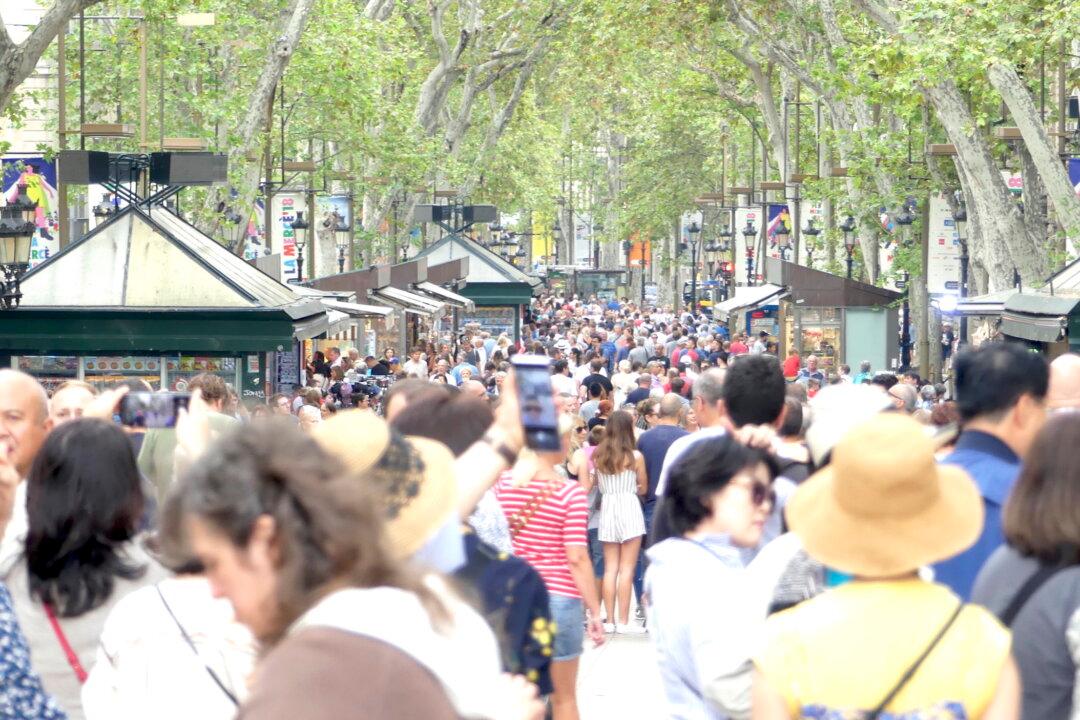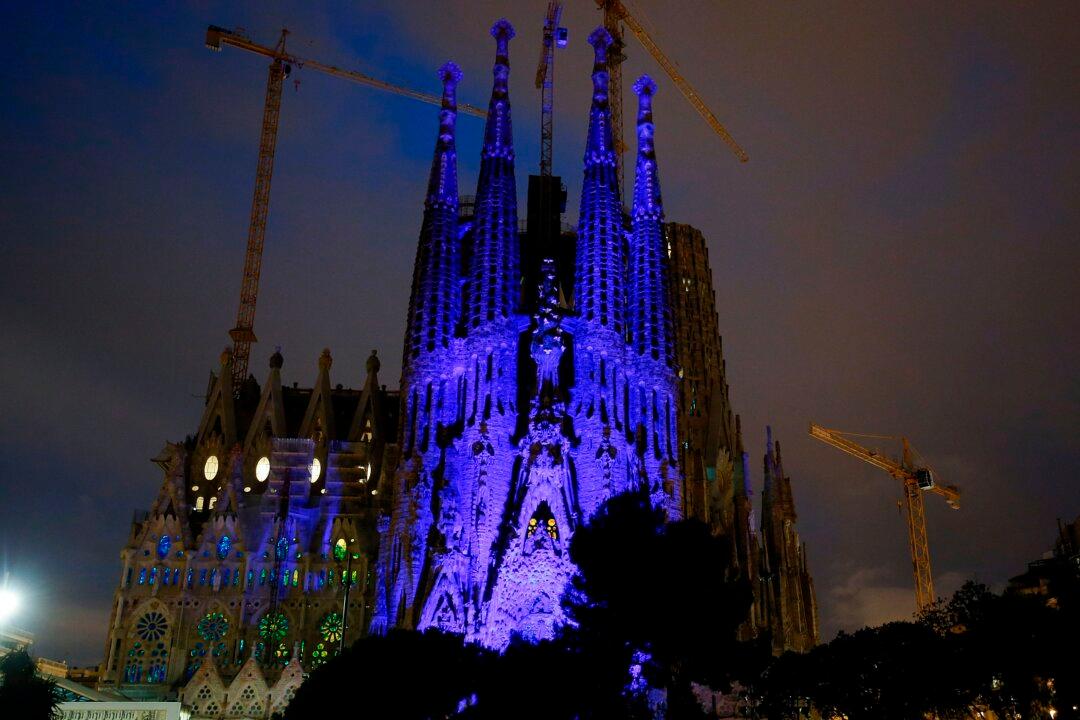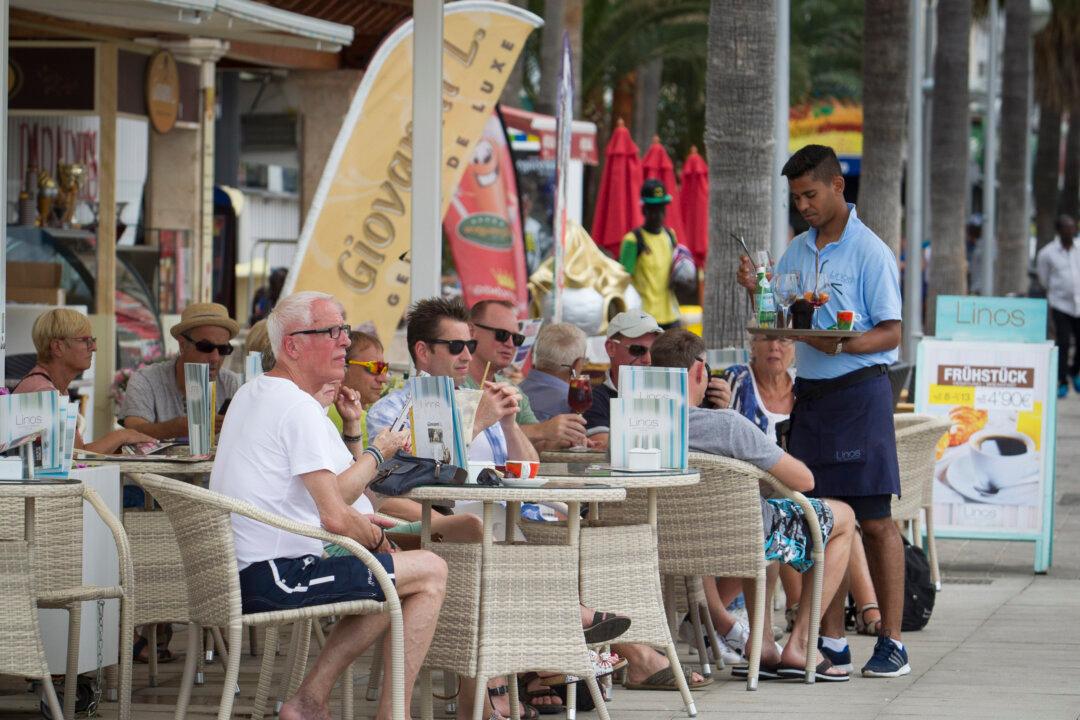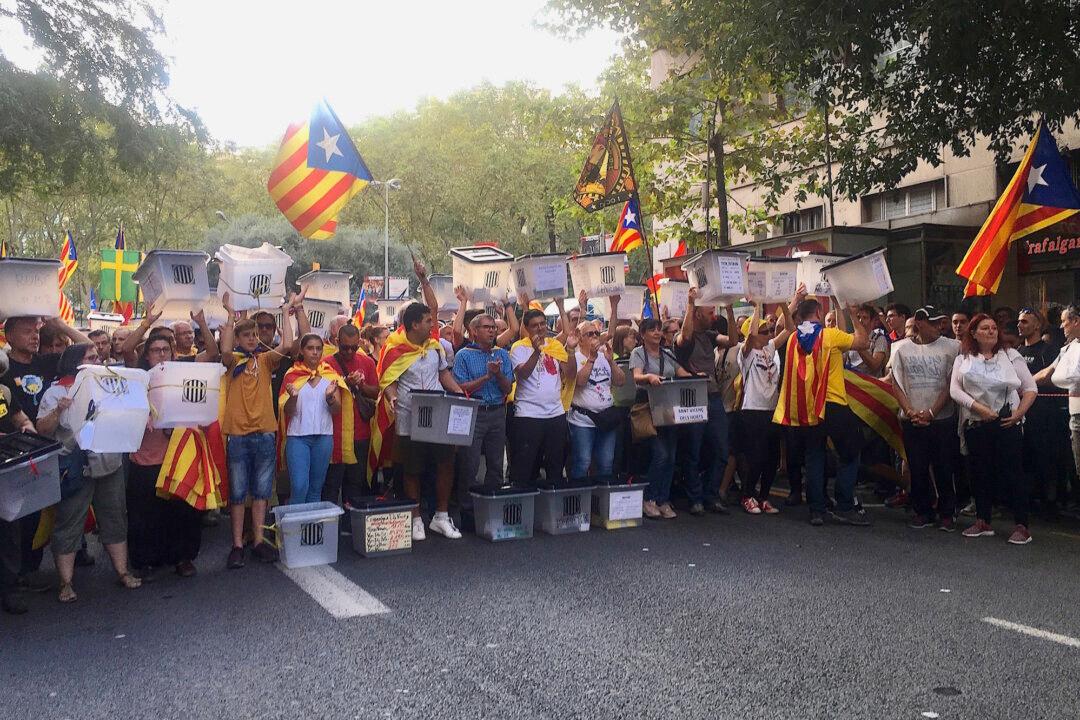BARCELONA—Tourism may be one of the major sources of income for Barcelona, but residents of the popular Spanish seaside city are getting increasingly fed up with massive numbers of tourists flooding into their city, straining the infrastructure and driving up living expenses.
“Barcelona is not a theme park,” said David Riojo, who lives in La Barceloneta, a seaside tourist district of Barcelona.




